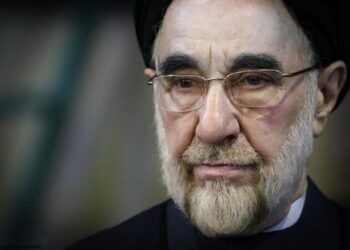Now the regime plans to try him for “banditry and extortion.”
Nadarkhani was originally arrested in October 2009 in his home town of Rasht on charges of apostasy. He was tried on that charge, convicted and sentenced to die for apostasy.
There was then a loud outcry from the West, where the idea of punishing someone for changing his religion is viewed as crude, medieval and downright evil. It is just about the sole issue on which secular Westerners, atheists and the faithful can not only agree but also feel very strongly about.
But there are also many people in Iran, including in the clergy, who find execution for apostasy to be contrary to the Islamic edict that no faith can be forced on anyone.
As a result, the regime is trying to back away from the apostasy charge—but it isn’t freeing Nadarkhani.
Last September, the deputy governor general of Gilan province, where Rasht is located, said Nadarkhani was not under the death penalty for apostasy but rather for other crimes such as security violations and operating a house of prostitution, crimes that had not been mentioned before then.
On Saturday, the International Campaign for Human Rights in Iran (ICHRI) reported yet another change. It said Nadarkhani will be put on trial August 27 on an entirely new set of charges—“banditry and extortion.”
Nadarkhani, now 33, was born to Muslim parents and became a Christian at the age of 19. Prior to his arrest, he led a congregation of about 400 Christians in Rasht on the Caspian coast.
Nadarkhani’s conviction for apostasy is on the public record in many places. His death sentence was upheld by Branch 11 of Gilan Province’s Appeals Court on August 23, 2010. On June 28, 2011, Iran’s Supreme Court overturned the sentence, but made the decision conditional on Nadarkhani’s repentance. There were three court sessions during one week in September 2011 in which Nadarkhani was asked to repent and refused each time.
On September 30, 2011, the charge of “extortion” was mentioned for the first time in a Fars news article about Nadarkhani, ICHRI said. The article claimed that Nadarkhani was accused of rape and repeated extortion.
But the emphasis was on other crimes. Fars quoted Gholam-Ali Rezvani, deputy governor general of Gilan for security as saying, “Youcef Nadarkhani has [committed] security crimes and had set up a house of prostitution. This individual is a criminal and his crime is not inviting some to the religion of Christianity, but he has committed security crimes. Nadarkhani’s death sentence has been issued for security crimes.” That contradicted what the Judiciary had been saying for months.
Mohammad Ali Dadkhah, Nadarkhani’s lawyer, told ICHRI at the time, “If he is under trial in another court on other charges, I am not aware. But we only defended him against the death sentence in the case of his charge of apostasy. The charge the court staff announced that I defended during several different court sessions was apostasy and no other charge.”
The new charges suggest to many that the regime is unwilling to free Nadarkhani but wants to get away from inflammable apostasy issue. “They are bumbling about hunting for some excuse—any excuse—to keep Nadarkhani locked away in a dark cell,” said one observer.
The source quoted by ICHRI said that Nadarkhani’s lawyer, Dadkhah, will be allowed to attend his trial next week despite the fact that Dadkhah was banned from practicing law in April. “This is a cause for joy,” the source said, “because Nadar-khani has no other lawyers and would not have been able to choose another lawyer in this short time.”
The Nadarkhani case is just the latest of many that have created a mess for the Judiciary. Officials find themselves turning in several directions at the same time, tripping over themselves and bumping into other officials as they try to figure out what to do.
The mess is largely caused by a conflict between hardline ideologues in the Judiciary who believe in clamping down harshly on wayward citizens, and others more moderate who believe the law needs to be wielded more lightly if it is to earn respect from the public.
Foreign criticism also prompts conflicting reactions, with hardliners spurred to demand even harsher action in anger at foreign interference, while others see that the criticism comes not just from the West but from many Muslims who view Iranian justice not only as zany but as painting Islam in the worst light before the rest of the world.
Every few years, some case flares up and draws much attention.
A decade ago, spying charges against 10 Shirazi Jews offended the world. Officials of the Khatami Administration told visitors the Jews were the victims of a political battle between rival revolutionary groups in Shiraz. But the trial went forward and the Jews were sentenced to long terms. Once the noise level dropped, Tehran officials saw that the Jews were freed long before their sentences expired.
Most recently, the stoning sentence issued for adultery to Sakineh Mohammadi-Ashtiani caused a worldwide uproar. For years, the record of the case showed she was convicted only of adultery with her husband’s killer. But after the wrath of the world descended on the Iranian Judiciary, officials said she wasn’t to be stoned for adultery but hanged for her husband’s murder. The factual shuffle did not impress the world.














